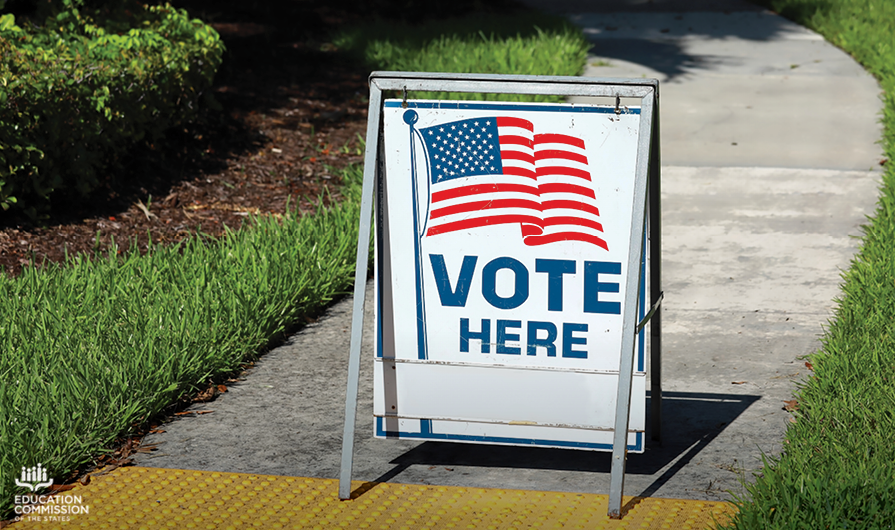Today is Teacher Appreciation Day — the start of a week dedicated to supporting teachers across the nation as the profession continues to face challenges. To truly appreciate teachers, it is first important to listen to their experiences and perspectives. One way states are valuing teachers’ insights is by including educators in the policymaking processes, specifically including teachers as members of education policy task forces and commissions.
At Education Commission of the States, we track policies that directly impact teachers and their work environments. The educator workforce includes important voices that are often left out of education policymaking because of a variety of factors, including inaccessible decision-making processes.
In one study, almost half of teachers surveyed said that state or district policies often create challenges in their work. The same survey found that 94% of teachers felt their voices were not factored into state decision-making processes. Reports show frustration with having no role in the creation while holding full responsibility for implementing policies that may or may not work in the classroom.
Teachers are often included in task forces and commissions that are directly charged with examining teacher-related issues. In Colorado, the Workgroup on Diversity in the Educator Workforce, created by H.B. 21-1010, is charged with investigating barriers to the preparation, retention, and recruitment of a diverse educator workforce and to consider strategies to increase diversity in the educator workforce. The membership must include teachers that are serving in both traditional public and charter schools. Fifty percent of the workgroup must include members of historically underrepresented communities. The workgroup’s findings and recommendations are due prior to Sept. 30, 2022.
North Carolina Executive Order 113 (2019) established the DRIVE Task Force to advise the office of the governor on strategies to address matters of equity and inclusion in education. In 2021, Executive Order No. 243 (2021) continued the DRIVE task force with the charge to identify steps to increase teacher diversity. The governor appointed 34 task force members to represent a range of stakeholders, including educators. A final report with the commission’s findings and recommendations is due in 2023.
Several states have current and on-going task forces and commissions on a variety of education topics with teacher members or representatives.
Georgia recently established the House Study Committee of Literacy Instruction, H.R. 650 (2022), which includes a classroom teacher who specializes in reading and literacy. New Mexico H.M. 43 (2022) requires teachers to be members of a task force that will develop a plan for student mental health and wellness.
Oklahoma requires a teacher to be a member of the Out-of-Schooltime Task Force, H.B. 1882 (2021), which is charged with identifying, evaluating and recommending a set of best practices to improve and increase the number of quality, affordable out-of-school programs in the state. The Texas Commission on Virtual Education, H.B. 3543 (2021), includes a current or retired teacher appointed by the governor. The commission is developing and making recommendations regarding the delivery of virtual education in the public school system.
Regardless of the topic and charge, states are recognizing the significance of educator voices and including educators in statewide task forces and commissions. Including teacher members in the policymaking process is a start, but it does not guarantee their voices are heard and included throughout the implementation process. One way to show teachers true appreciation, is to honor their work by elevating teacher voices and viewpoints in education policy decision making.














